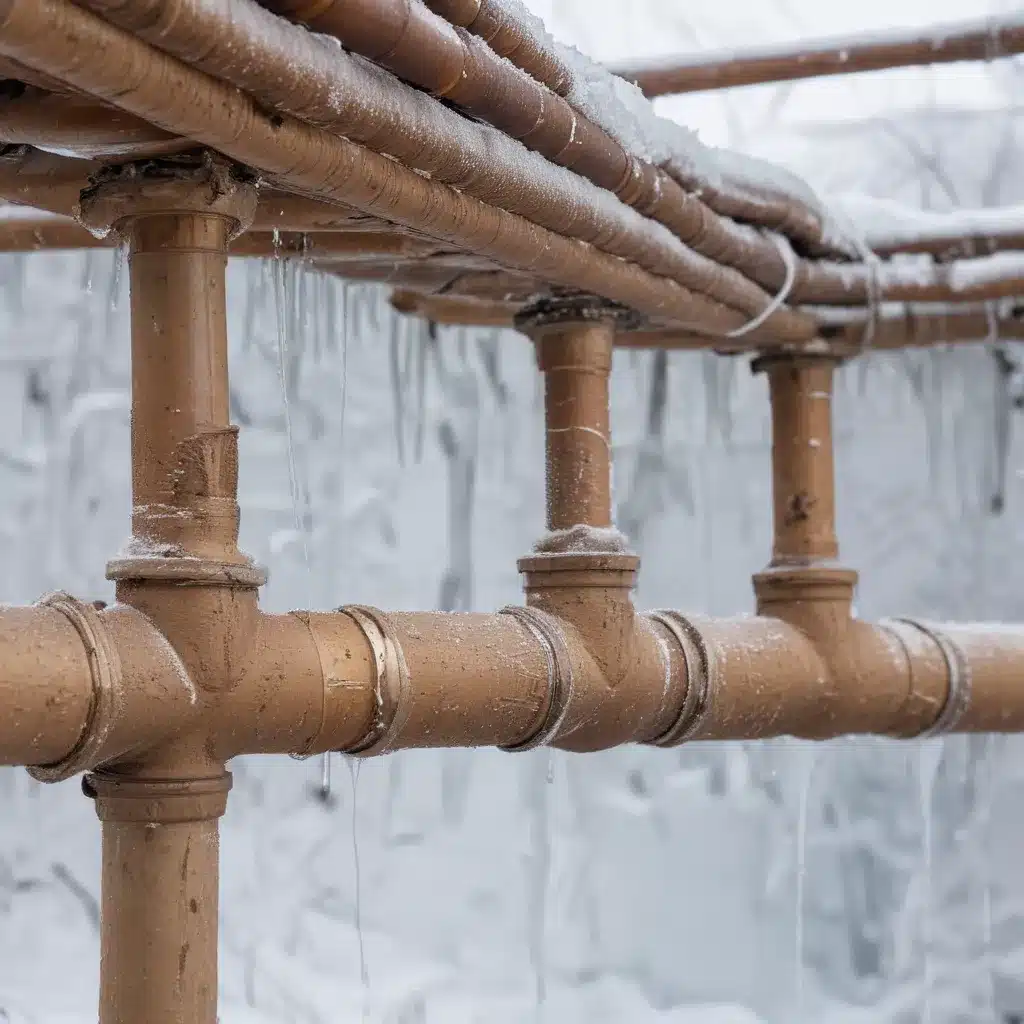
As the UK experiences increasingly unpredictable winter weather patterns, homeowners, facility managers, and commercial property owners might want to take proactive steps to protect their plumbing systems from the dangers of frozen pipes. In our 15 years installing… Burst pipes can lead to catastrophic water damage, expensive repairs, and disruptions to daily operations. Fortunately, by employing a range of advanced strategies, you can safeguard your property and minimize the risk of frozen pipes, even in the harshest of conditions.
Now, this might seem counterintuitive…
Pipe Insulation and Weatherization
The foundation of any effective frozen pipe prevention plan lies in proper insulation and weatherization techniques. Thermal insulation materials, such as fiberglass, foam, or pipe wraps, play a crucial role in maintaining the temperature of your pipes and preventing heat loss. When selecting insulation, consider the R-value (resistance to heat flow) and the specific needs of your property, as exposed pipes in unheated areas like attics, crawl spaces, and exterior walls will require more robust insulation than those located in conditioned spaces.
Implementing proper insulation techniques is key to maximizing the effectiveness of your weatherization efforts. double-check that that all joints, valves, and fittings are properly sealed and insulated, and pay close attention to areas where pipes may be vulnerable to cold drafts, such as where they pass through walls or floors. For added protection, you can also consider using heat tape or heat cables, which provide supplemental warmth to at-risk pipe sections.
In addition to insulating the pipes themselves, it’s essential to protect exposed pipes from the elements. This may involve enclosing them within insulated boxes or cabinets, or wrapping them with specialized pipe insulation sleeves. Paying close attention to areas like outdoor faucets, irrigation systems, and water supply lines can make a significant difference in preventing frozen pipes.
Pipe Placement and Layout
The strategic placement and layout of your plumbing system can also play a vital role in mitigating the risk of frozen pipes. Pipe routing and spacing should be designed to minimize the exposure of vulnerable sections to cold air, with a focus on keeping pipes away from exterior walls, attics, and other uninsulated spaces. Whenever possible, route pipes through heated areas of the building, such as interior walls or crawl spaces, to take advantage of the insulating properties of the surrounding environment.
Proper drainage system design is another critical consideration. double-check that that all pipes are installed with a slight slope to facilitate the complete drainage of water when the system is not in use. This can help prevent the accumulation of stagnant water, which is more susceptible to freezing. Additionally, strategically placing drain valves at low points in the system can make it easier to fully evacuate the pipes during periods of extended inactivity.
Water Supply System Optimization
Optimizing the performance of your water supply system can also play a significant role in preventing frozen pipes. Water pressure regulation is essential, as excessive pressure can increase the risk of pipe bursts, while insufficient pressure can limit the effectiveness of heat transfer and lead to freezing. Work with a qualified plumber to double-check that your system operates within the recommended pressure range, typically between 40 and 80 psi.
Pipe sizing and capacity are also important factors to consider. Oversized pipes can lead to stagnant water and increased freezing risk, while undersized pipes may not provide adequate flow to prevent freezing. Work with your plumber to design a system that meets your current and future water demands while minimizing the risk of frozen pipes.
Integrating efficient flow monitoring technologies, such as smart water meters or leak detection systems, can also help you stay ahead of potential freezing issues. These systems can alert you to sudden changes in water usage or pressure, allowing you to take immediate action to address the problem before it escalates.
Proactive Maintenance and Inspection
Regular periodic inspections of your plumbing system are essential for identifying and addressing potential issues before they lead to frozen pipes. Pay close attention to areas that are particularly vulnerable to freezing, such as exposed pipes, uninsulated spaces, and outdoor faucets. Address any cracks, gaps, or other structural issues that could allow cold air to infiltrate the system.
Preventative pipe replacements may also be necessary, especially for older or outdated plumbing materials that are more susceptible to freezing and bursting. Work with your plumber to develop a long-term maintenance plan that includes the gradual replacement of vulnerable pipe sections, ensuring the resilience of your system in the face of challenging winter conditions.
Regulatory Compliance and Building Codes
When it comes to preventing frozen pipes, it’s crucial to stay up-to-date with local plumbing regulations and building codes. These guidelines often specify minimum insulation requirements, pipe material standards, and other measures designed to safeguard plumbing systems against the effects of cold weather. By ensuring your property meets or exceeds these regulatory requirements, you can have peace of mind knowing that your pipes are protected to the highest industry standards.
Remember, the key to preventing frozen pipes lies in a multi-faceted approach that combines intelligent design, robust insulation, proactive maintenance, and a deep understanding of the applicable regulations. By investing in these advanced strategies, you can safeguard your property, minimize costly repairs, and double-check that the uninterrupted operation of your plumbing system, even in the harshest of UK winters.
For more information on how Plumbing Drains North Wales can assist you in implementing these strategies, please visit our website at https://plumbingdrainsnorthwales.co.uk/. Our experienced team of plumbing consultants is dedicated to helping you protect your property and optimize your plumbing systems for maximum resilience and efficiency.Example: Cardiff Commercial Plumbing Upgrade

